Most of the people who know me around here will be aware of the fact that I am a massive and blatant ArmA fanboy. The superior tactical combat offered by the series is something that, for me, has rendered many an FPS obsolete. As such, I would definitely appreciate it if, despite the buggy nature of ArmA's Real Virtuality engine, the design behind this legendary military simulator were to be used in more games.
(ArmA 2 screenshot taken by myself)
Lady Fortuna must have taken notice of my inner murmurings, for Deep Silver is about to release a first person shooter called Iron Front: Liberation 1944. Generic as the title may be, I nearly fainted when I read the announcement over at Bohemia's website due to several reasons. Firstly, it is built around ArmA 2's technology, promising a tactical approach that was unseen in all of the major WW2 shooters I dedicated a big chunk of my high school-era leisure time to. But perhaps more importantly, if you would ask me to compile a list of wishes for a World War 2-themed game, it would come uncannily close to the list of features given on Bohemia's official webpage. @Bamul can attest to this, as a while ago we were talking about how there was still a lot more potential in World War 2 games than was materialised by developers back when WW2 games enjoyed an amount of popularity similar to what modern warfare-themed games do now. Our main complaint focused on how the Eastern Front hardly received any exposure in most of the WW2 games, while a large part of the warfare indeed took place on the fields of Eastern Europe. As its subtitle implies, this game revolves around the 1944 summer offensive, when the Soviet Red Army started pushing the German Wehrmacht back to Western Europe. Quite daringly, the game allows you to play as both the Soviets and the Germans, inadvertedly allowing you to use a vast variety of iconic weaponry from both sides.
(promotional screenshot taken from Deep Silver's website)
Words can barely describe how excited I am for this game, although I feel I should reserve some of my enthusiasm until after I try it out and/or the first reviews start pouring in. After all, the game only uses ArmA's technology and is, for as far as I know, not actually being developed by Bohemia, but rather by two rather unknown studios called AWAR and X1 Software. Moreover, it is not unreasonable to fear that the notorious bugginess of the ArmA series will also hit Iron Front, especially in the first weeks after its release. On the other hand, everything from the features to the gameplay footage to the screenshots looks great, so I have high hopes that this may be one of those hidden gems, and maybe even the World War 2 game I've been waiting for all these years.
Some links:
Announcement by Bohemia Interactive
Official Iron Front page by publisher Deep Silver
DraugenCP Blog
So, who said game mods are dying?
by DraugenCP on Comments
A while ago, a zombie mod called DayZ was released for Arma 2: Combined Operations (Arma 2 + the Operation Arrowhead expansion). The mod, which still is in its alpha phase, lets you play in an open, zombie-infested world, where your only goal is to survive. The game takes place online in servers supporting over 50 players alongside hundreds of AI-controlled zombie units. Making both cooperation and intra-human fighting possible.
The mod is so wildly popular (nearly fifty thousand individual users have been counted so far) that the Arma 2: Combined Operations pack has been the top-selling game on Steam for several days now, which is extraordinary for a 2-year old game that isn't on sale. Sales have reportedly gone up 500% since the release of the mod.
(image taken from DayZmod.com)
The Prague-based developer of the game, Bohemia Interactive, has noticed the sudden rise in popularity, and will lend a helping hand to the modder (who, by the way, actually works for Bohemia) by taking some of the mod's issues into consideration with the next Arma 2 patch (1.61). They've also noted that the mod's concept is strong enough to stand on its own in the future, so maybe we'll end up seeing a separate release somewhere down the line.
I think it's great that there are still developers out there who do not only acknowledge, but actively assist the modding community, whereas other developers, such as DICE, have claimed that 'mods are dying'. I just thought I'd post this to show that, amidst the turmoil of DRM, DLC, online passes and other excesses of the increasingly unethical video game industry, there are developers like Bohemia who actually care about the community.
Some links:
Official website of DayZ (also the source of the picture)
Armaholic article on DayZ and the latest Arma patch
Interview with DayZ mod creator Dean "Rocket" Hall on RockPaperShotgun
Interview with Bohemia CEO Marek ?pan?l about DayZ on Kotaku
Look at what I found
by DraugenCP on Comments

Reviewing stuff is something that I have been into for a long while. While I now write reviews of just about any medium, be it video games, cinema, music, or even literature, I initially stuck to video games only. This is quite logical seeing as my love for writing these blurbs began as soon as I started reading my first gaming magazines. I would initially write bizarrely fanboyish reviews on Nintendo games on pieces of paper using a pencil, even going as far as copying the entire layout of my favourite zine at the time, N64 Magazine (drawn screenshots included). After a while, my focus shifted to the internet and I discovered the big gaming websites, such as the one you are on right now. Seeing as my writing skills were obviously still very limited (I must have been like 10 years old at the time), I had little choice but to copy the stuff I read most. Still being a rampant Nintendo fanboy at the time - I even remember sending an angry e-mail to Game Revolution for rating Tomb Raider higher than Super Mario 64 - my reviews were basically just declarations of love to whatever N64 game I was into at the time, with a snarky comment about Sony thrown in here and there. I also switched from Dutch to English because that's the language most of the reviews I read from that point onwards were written in.
I'd like to think that now I write reviews with a little more depth, and that I even might have developed my own styIe, but this isn't something that I developed overnight. I'm still learning new stuff every day, and apart from having had to develop a more mature view on video games, I've also had to improve my English constantly as I'm not a native speaker of it. That I've at least made progress in both of these areas will be attested to by this cute artefact I found lying around in some drawers one day. Because while many of my earliest reviews will have been lost forever (probably for the better...), it turns out I printed out some of my reviews and video game-related articles a good few years ago. Judging by the fact that the documents contained both a review of the first Need For Speed Underground and a preview article of the "Nintendo Revolution" (codename for what turned out to be the Wii) and "the next Xbox" (the 360), they must have been written around 2004, when I was 15-16 years old. Out of this rather extensive collections of articles, I have decided to transcribe a review I did on Hogs of War, the overlooked PSX cIassic. I did not edit it, leaving all the dodgy reasoning and spelling/grammar errors in tact. My motivations behind publishing this, apart from it being good for a laugh, is that we often do not realise how much we learn over the years until we look back and see where we started. And this is where I started:
___
Hogs of War
Hogs of War was released in 1999 for the PSone. This is no ordinary wargame, seeing as you don't fight with/against common soldiers. The soldiers are pigs! This fact contributes to the originality of this game, and makes it stand out from the crowd. It's also not ordinary because this game is fine melange of the shooting-, strategy- and RPG genres.
This is how it works: You can choose from 6 different nations: France, Germany, Russia, USA, Great Britain and Japan. It doesn't matter which team you choose, seeing as the only things unique about the teams are the uniforms, the names and the voices. For the rest they have the same abilities in combat. Once you have chosen your team, you go on a training mission. In this mission, a funny voice (Rik Mayall) guides you on a map and lets you learn the basics of the game. After you're done, you go on a campaign of 25 missions.
In combat, you fight another nation, controlled by the CPU (except in multiplayer), and you take turns in attacking. Per attack, you can shoot/slap/stab etc. one time. After that, your enemy gets to attack, and the last team standing wins the mission. The missions require thought-out tactics, and it's pretty challenging. Although the game itself is pretty easy, it's always a challenge to get as few victims as possible on your side. After you win a mission, you can upgrade one soldier of your army. If all your soldiers are alive after a mission, you can upgrade 2 soldiers (or 2 soldiers twice).
With upgrading your soldier pigs, you can make them choose a certain career path: Heavy weapon specialist, medic, engineer or spy. They all have weapons unique to their career, such as mortyrs, TNT and bazooka. After you upgrade a certain member enough times, they'll become an almighty commando, no matter which career path they have followed. This upgrading feature also requires some thinking. Would it be smarter to slightly upgrade all soldiers, or would it be more wise to make one super strong soldier?
You get the concept of the game now, but how has it been worked out? I can tell you one thing: The game lives up to the expectations I gave you with my explanation. The 3D worlds are varied and quite beautiful for a PSX game. This game will take you from rainy trenches to deserts to green hills. It's always a surprise what the next world is going to be like. After you've conquered island by island, and wonder: "So, that's it?", the answer is no. There also is an exiting multiplayer mode with many options. You can even use the army you've created in single player mode in a battle against your friends.
Many critics have called this game a 3D version of Worms, but it's much more than that. It's just top fun, and it pleases me to see that the makers of this game mainly focus on gameplay and fun. That, however, doesn't mean that the graphics and sound of this game lack. In contrary, the voices have been done by Rik Mayall, the British comedian who starred in shows such as The Young Ones, Bottom, and he even also appeared in the famous show Blackadder, with Rowan Atkinson. His voice talents give this game an even more humerous touch than it already had. He is good at immitating the accents of the many nations featured in the game.
As I said before, the graphics of this game are very good for a PSone-game. I played this game for the first time this November (2004), and the graphics don't annoy me, which is good for a game of 5 years old. The awesome 3D worlds really contribute to the atmosphere of this game. Walking through the mud in the rainy trenchwar-level is an awesome experience, and the other World War-ish locations are all very neat and they did a good job designing it for tactical battle.
All in all, this game is a fantastic choice for those who are getting bored of all the realistic wargames being released nowadays. Even if it's old, this is certainly a game worth playing. It wasn't an overhyped game so a lot of people have not played this games, and they are really missing out. If you're one of those people, I suggest you buy this baby soon, it shouldn't be too expensive.
It's a game that lasts. It's never boring to replay the single player mode, and the multiplayer does great at parties, I can tell you that. The keywords of Hogs of War are originality, tactic, fun and variation. It's one of the secret gems of the PSX. and guarantees for neverending fun. This is not just Worms in a 3D world, it's Hogs of War.
Report Card:
87/100
+ Pure fun
+ Funny voices
+ The different armies
+ Varied maps
- So-so graphics
- Music?
(Note: I couldn't find the old screenshots I used, so I just looked for similar ones on the internet to keep the layout more or less faithful to the age-old original.)
___
And so ends a fascinating document, and a testament of how much I still had to learn when I was a 16 year-old adolescent who thought he knew it all. In my own defence, though, I remember I often was too lazy to re-read my own stuff, so I might've been able to do better than this at the time. In any case, maybe I should start playing this game again soon and write a new review. I promise it'll be better.
Rethinking the Review
by DraugenCP on Comments
It is an often-heard complaint that video game journalism as a whole lacks the maturity of other branches of journalism. This assessment is hard to counter when one takes a look at how gamers themselves look at video game reviews. To many, it is all about how high a score a certain game gets. What is written in the actual review itself is hardly ever brought up. Part of this may be attributed of the immaturity of gamers themselves, but another conclusion one could draw from this is that reviews just do not contain a whole lot of interesting information.
What are the odds of him writing a review on Halo Reach?
The reason that video game reviews seem to be getting less interesting is that most of them keep sticking to the buyer's guide ideal, the belief that the primary (or even only) function of a review is to inform potential buyers whether or not Game X is worth their money. This perception may seem logical, but over the past few years, us gamers have obtained more and more possibilities to inform ourselves. Demos are making a comeback thanks to services such as Steam, Free-to-Play versions of games are becoming increasingly popular, and websites such as YouTube make it possible to witness with our own eyes how a game plays. The role of the reviewer as an informer in this sense, seems to be over. I tried recalling the last time when a review made me go out and buy a game, and I could not come up with anything. And as someone who likes reading reviews, this says something. As such, I cannot help but conclude that this must be the same for a lot of people out there, effectively reducing the relevance of reviews in this sense to a Metacritic average that may give us a slight indication of a game's quality.
This should not mean, however, that video game reviews have been rendered obsolete altogether. On the contrary, perhaps we can now move on to a more mature 'discourse' if you will, and use reviews to get closer to the essence of a video game. Pretentious as it may sound, it is a necessary step to take if we ever want serious video games to be taken seriously, instead of it being perceived as just another pastime for antisocial teeny boppers. After all, most of us who have been playing video games for a long time are aware of how fascinating they can be. How they can keep us busy and even become valuable emotionally. Therefore, this is perhaps the right time to revindicate the video game review and use it to start exploring these sentiments rather than just sticking to the worn-out graphics/sound/story/gameplay check-list formula that stems from a day when reviews were still virtually the only way for gamers to inform themselves.
What the writers of Law & Order: SVU think you look like.
Because it is a good habit to put your money where your mouth is, I have taken up experimenting with new ways of reviewing games. My ArmA X and Cryostasis reviews were already precursors of this new styIe although it should be noted that they were initially intended as original ways of analysing games that lent themselves exceptionally well for a fresh outlook. What I will do in the coming days/weeks, is post reviews to more mainstream and/or unspectacular titles and try to explore how they interact with the gamer in a slightly more down-to-earth way than with the aforementioned two reviews. It is not my desire to claim that I have 'reinvented' video game review writing, or to imply that writing them in the traditional way is bad necessarily, but I do think it is a good idea to reflect on what reviews are for and maybe evolve the way in which we write them when we conclude that they are starting to lose relevance.
____
In the next couple of days/weeks, I'll post reviews to several titles to see how this new approach works for different types of games. Firstly, I will soon post a review of Call of Duty 4: Modern Warfare, the gaming equivalent of a Hollywood blockbuster. Then I'll attempt to review TMNT: Smash-Up, an obscure and not very original fighting game that is still not without merits. Finally, I'll post a review of a yet-to-be-determined game of another genre to complete the cycle. It would be great if you read one or more of these reviews and told me whether I'm on to something, or I should stop over-analysing simple entertainment. :P
Finally, I gave out another 10!
by DraugenCP on Comments
What a way to come back from a 5-month reviewing hiatus. For a long while, I wasn't particularly in a reviewing mood. I had other priorities and I just couldn't get myself to write down large blurbs of text on video games, music, or anything for that matter. But yesterday night I nearly forced myself to write a review of ArmA X, a collection boxset of all games in the ArmA series, something which I had been planning for quite a while. And it was worth it. Because even though I ended up going to bed at about 3:30AM and yawning constantly during college the following day, I managed to produce a rather worthwhile read. People who have read my Cryostasis review will already know that I like to approach a game review from a different angle every once in a while. With the ArmA X review, I decided to take this approach even further, resulting in a read that is borderline pretentious, but also a welcome break from the graphics/sound/lifespan model of the usual review. I think that, if the medium is ever to overcome its relative superficiality when compared to genuine art forms, we'll have to start looking at games in a more mature way. This review merely reflects a personal attempt to do so. You can read the entire thing with pictures and everything below this paragraph, but don't forget to thumb up my review through this link if you like it. Why? Ego boost, that's all.
ArmA X: Anniversary Edition

Developer: ![]() Bohemia Interactive
Bohemia Interactive
Publisher: ![]() Bohemia Interactive
Bohemia Interactive
Genre: Sandbox First/Third-Person Shooter, Military Simulator
Platform: PC
Input Methods: Mouse + Keyboard, Xbox 360 Contoller, Track-IR
Release Date: September 16, 2011
"A true video game monument."
The biggest problem with the debate about whether or not video games could be considered art, is that gamers and developers alike seem to have a fairly limited view on the meaning of art, preventing them from seeing the true artistic potential in the video game craft. Just enter a random discussion on the topic, be it in real life or on the internet, and the advocates of art in video games will often defend their stance by referring to aesthetically pleasing, often drawn or painted visuals, or to a well-composed orchestral soundtrack. With these tunnel vision arguments, they do not only fail to realise that separate artistic components do not guarantee that the final product is artistic, but also that the artistic and aesthetic potential of video games lies elsewhere, namely in the interactivity between the medium and its 'beholder'. The word 'beholder' might not be entirely appropriate here, exactly because his role is not only to behold (passive), but to interfere (active). And, with this, we have already captured the difficulty of the debate at hand: as similar as the video game medium may be to other media, such as television and music, in terms of both the production process and the experience, the relation it establishes between the creator and the 'beholder' is so radically different from what we are used to in more traditional media, that it becomes difficult to apply the traditional concepts and ideas of art to this new, peculiar craft.
The peculiarity of the video game medium inadvertently forces us to explore alternative ways of defining its aesthetics. Because different as the craft may be, we still judge video games the same way we judge films. In the average video game review, much emphasis is put on production value and exterior aesthetics, often resulting in relatively short, safe (and dare I say marketable) blurbs that rarely stray from the 'buyer's advice' review ideal, meaning that the essential question the review answers is "should you (i.e. the reader) buy this game or not?", rather than "does this game lift the medium to a higher plain?" This approach is partially inevitable, due to an economy-centred mindset being embedded in the modern, Western way of thinking, but nothing is stopping individual reviewers such as myself from choosing a different perspective and judging a video game based on how it manages to establish a link between the game and the 'beholder', or rather, the human actor.
Paradoxical as it may seem (the franchise seeks to emulate reality rather than chase an artistic ideal), the long-running military simulator ArmA is perhaps one of the best examples of a video game series that is aware of the power of interactivity, as it never ceases to explore beyond the boundaries and conventions of the medium. The ArmA X collection box presents all of the titles in the series in their definitive form: ArmA: Cold War Assault from 2001 (originally released as Operation Flashpoint; the game was rebranded due to copyright issues), ArmA: Armed Assault from 2007, ArmA 2 from 2009 and the ArmA 2: Operation Arrowhead standalone expansion from 2010, including all expansions/DLCs associated with these titles. Together, they form a true testament of Bohemia Interactive's extraordinarily progressive work as video game designers. At the centre of every instalment is the literally limitless freedom, which manifests itself in various aspects of the game. While marketed as a military simulator, ArmA is, at its core, a sandbox shooter. Missions take place on huge maps, offering a variety of terrain, conditions, and combat circumstances and opportunities. Each game in the series offers the player a choice in weapons and vehicles that is so large that it is yet to be matched by any game that falls into the not particularly tight mold of the action genre(s).
Meanwhile, the AI has been programmed to adopt to the unusually dynamic and extremely variable nature of the gameplay. Marred by occasional bugs and unnatural animations, the robust nature of the computer-controlled characters prevents this aspect of the game from generating an appropriate amount of praise. The eternal curse of sandbox gaming - and ArmA is by no means an exception - is that the unpredictability of player behaviour as well as the dynamic nature of the circumstances will inevitably generate conflicts from time to time: a superior number of variables equals higher odds of something occurring which was unanticipated by the designer and, with that, the engine. This is why linear shooters such as F.E.A.R. and Killzone are more likely to impress - on a superficial level - with their more perfected yet more limited AI than open-ended games such as S.T.A.L.K.E.R. and indeed ArmA. While understandable, it should be noted that the AI in ArmA 2 especially is capable of such advanced movements that, sometimes, the line between human players and computer-controlled characters becomes blurry. Computer-controlled units will make choices on the spot and enemy troops may advance to your position or wait until you come and get them. They will execute complex manoeuvres that do not just involve flanking, but what genuinely seems to be anticipation of what the player expects him to do. Soldiers may even make tactical mistakes, which adds to the authenticity of the experience, as well as the fairness of the gameplay. It is safe to say that, as the series progressed, it has consistently upgraded the abilities of the AI to a point where it outcIassed nearly all of its contemporaries at the time of release.
In fact, one of the most remarkable things about the ArmA X collection is that it even allows newcomers to experience just how far ahead of its time the series was when it was first presented to the public under the Operation Flashpoint banner in 2001. It is very noticeable that the project was born out of the dissatisfaction of some former servicemen, who worked with Bohemia, about the war-based first person shooters of the time. Because while Medal of Honor and the likes had already transferred the romantic ideal of war to the video game medium and taught us how the backdrop of major armed conflicts could be used for entertainment purposes, there were not really any games that gave us a glimpse into what it would be like to be an actual soldier. Bohemia Interactive filled this niche by offering us a shooter that was not really a shooter in the sense that it completely reconsidered all of the conventions that we had grown so familiar with whilst bearing arms in the virtual world ever since Wolfenstein 3D and Doom popularised the first-person shooter genre in the mid-nineties. And so it came to be that, over the years, the ArmA series set a completely new standard for the emulation of human movement, weapon handling and vehicle control, inadvertently showing us just how primitive the traditional FPS movement format actually is. It was one of the first first-person shooter series to include head-bobbing, a realistic ballistics model for guns, a carry limit of two or three weapons, a fleshed-out vehicle control model for both land and air units, and many other things. The games even include ideas that are not only revolutionary, but logical, yet which are still ignored en masse by developers of first-person games across the world: the aim deadzone and the ability to move the head independently from the body are just mere examples of this.
In short, the ArmA series has, in the first decade of its existence, completely redefined interactivity between the player and the game, lifting it to a new level of authenticity that is as admirable as it is necessary to transcend one's constant consciousness of 'just playing a video game'. Naturally, much of the believability required to blur this border between game and gamer is achieved through atmosphere: sound design, visual design, story, pacing; when executed well, they can all enhance the experience and bring the player closer to a genuine experience. But what might be even more important is giving the player freedom. Freedom in movement, freedom in how he approaches each situation, freedom in how he enjoys the game. Eliminate the limitations in the game's design and the game will seem more natural, or, in other words, believable to the player. And this believability is required to establish an emotional link between the player and the game.
At the same time, one of the biggest challenges that game developers still face today is to make the player forget that he is using a controller or a keyboard or a mouse, exactly by making what appears on the screen so believable that he focuses on the interior movement of the game rather than the exterior movement involved (i.e. the action required to connect the player to the game). There is a reason that, despite the advancements made in motion gaming over the past years, believability, atmosphere and immersion are still achieved largely through in-game adjustments rather than making the player move physically like he would whilst executing the real-life equivalents of the actions that appear on-screen. Just like games such as S.T.A.L.K.E.R. and Cryostasis, the ArmA games utilise the game design itself to appeal to our emotions to immerse us into their world. But unlike the former two games, in which the immersion generally manifests itself as feelings of genuine solitude and emptiness respectively, the ArmA series consistently converts the power it has over its players into a small but actual taste of what war must be like. Fear, adrenaline and excitement all run through your body during battle.
Due to its focus on realism, or rather, authenticity (because the games do concede occasionally to accommodate gameplay), the ArmA series is demanding in the sense that it requires the player to make a considerable effort to really get into the series and discover its strengths. None of the games in the series will blow you away instantly, but as you progress, hour after hour, you will keep discovering new features, aspects and details, the plethora of which will, at one point, make you realise that there really is nothing out there quite like ArmA. This does not only refer to the rather niche subgenre the games find themselves in (that of the military simulator), but also, or should I say, especially to the fact that this game does even the most basic aspects of gameplay (such as indeed human movement) so differently from what we have grown accustomed to, that it makes one wonder why other developers keep sticking to so many conventions on the sole account of their familiarity, while this game proves almost single-handedly that nearly everything we see in even the most recent first-person shooters could and should be done better.
There are many, many more things to be said about a franchise consisting of games as profound as these. Be it the extensive mission editor, the amazing visuals, the vast online component or the invaluable modding community, there shall not be a review written about even an individual game from the series that does not impose great injustice upon it by omitting at least a few of these aspects altogether for the sole sake of readability. The strength of ArmA, however, is rather briefly summed up by the uncannily progressive (and one might even say overambitious) thinking of a few crazy Czech developers that demonstrates their understanding of the importance of the connection between their creation and the player. Whether such a creation then goes on to let us experience the chaos of war, the nostalgic solitude of a post-apocalyptic exclusion zone, or the coldness of a haunted nuclear icebreaker matters little. What does matter is that video games, as a medium, finally seem to be getting better at provoking emotions simply by rethinking the technology behind them; emotions that surpass the short-lived excitement of the more popcorn-suited productions. And if we keep exploring this road, video games might one day actually be considered art. But before that happens, not only the creator, but also the 'beholder', i.e. the gamer, will need to teach himself to perceive games from a different angle. We still have a long way ahead of us, but perhaps this review might prove to be a small but determined step into the right direction.
Score: 10
Skyrim: First Impressions and Random Thoughts (pictures inside!)
by DraugenCP on Comments
Upon reading the title you might've thought "first impressions, isn't a little late for that?" Why yes, it is, but due to restrictions of both a financial and a chronological nature, I wasn't able to buy Skyrim until a few days back, when I finally got the PC version of the game. ...Still at full price, of course. But you know what they say; better late than never, and at least I can still give my thoughts on the game before the end of the year.
So, Skyrim, the long-awaited sequel to one of my favourite games of all time, Oblivion. Needless too say, I was quite excited when I got it last week, knowing that I had a whole weekend (and possibly even more) to play the game without anyone or anything disturbing me. The way it should be, with Elder Scrolls. The series has the uncanny ability to temporarily block out any social life you may have, and seeing as most of the friends I care about went back home for Christmas, this really was the perfect opportunity to enter the world of Skyrim.

Veles Berstuk, my Oblivion character.
The most difficult part of an Elder Scrolls game may very well be the beginning, as that is the moment you have to create a character you'll be stuck with for many, many, many hours. I've always had a preference for the beast races, Khajiit and Argonian, both because these are the best races for my stealthy gameplay styIe and because it has proven to be difficult to create an Imperial or a Nord in Elder Scrolls that, as a GS poster whose name I don't recall once put it, doesn't look like it's missing a chromosome. While this may not be necessarily true for Skyrim - the character models are much improved - I still stuck by my old vow to play through the new Elder Scrolls game as a Khajiit. I had already spent a good 200 hours with my trusted Argonian character Veles Berstuk in Oblivion, so I thought it was time for a change. And thus, Ja'Whar Mayu was born.

Pleased to meet you.
As I played through the opening sections of the game, I was pleased to find out that the cIass and upgrading systems had been, for the most part, vastly improved. I realise that 'streamlining' is code for dumbification in the present-day video game industry, but actually cutting down on needless features can still make a game just that much more playable and enjoyable. And that's exactly what happened with Skyrim. The player no longer selects a set cIass, but can instead specialise in whatever he wants whenever he wants, merely by practising said skill. Blessing stones provide a surrogate for the omitted cIass system, in that the skills associated with the stone you are currently blessed by will upgrade faster. In addition, many unnecessary skills have also been axed (no pun with the upcoming intended), such as the distinction between blunt and blade skills, which are now lumped into the one-handed category. These simplifications may be a nightmare come true to the RPG purists out there, but I am not one of those and I've always thought Oblivion was much stronger as a sandbox action/adventure game than an RPG anyway. It thus pleases me that Skyrim decided to walk further down this road.
Much can be said about the other improvements over Oblivion: combat, for example. The weapons now have a much heavier feel to them, making it feel like you're really wielding them. Slashing through heaps of enemies never ceases to satisfy me, and even my beloved archery has been improved with a similar, 'heavy' feel to the bow and more realistic arrow trajectory. Then there are the finishing moves; short cutscenes of you impaling an enemy that are triggered every once in a while. I normally dislike cinematic bells and whistles, but in this case I really appreciate them, seeing as the finishing moves make for a climatic end to a hard battle. There's just so much satisfaction to be found in seeing how an enemy that's been giving you lots of trouble is attached to your two-handed sword, after which his lifeless corpse is thrown to the ground like old rubbish.


I'm 'only' 25 hours in, but for as far as I can tell, the missions are also better than in Oblivion. They seem a bit more meaty than most of Oblivion's quests and can often be solved in a variety of ways. Gamespot hit the nail on the head when it said that Skyrim is a game that you want to tell people about, because some of the missions are so wonderful in both concept and execution that it's hard not to share your excitement with other people, regardless from whether or not they've even heard of the game. Today, for example, I did a mission where I had to face someone in a drinking contest, passed out and woke up with a hangover in a temple a few kilometres away, where the local priestess told me I was fondling the statue of the local goddess and tore up the main chamber. As I traced back my steps from the previous night, it turned I also kidnapped someone's goat and sold it to a giant, stole a ring and got engaged with a witch. This mission is a story in itself and it is but one of the hundreds of quests available in the game. There's just something going on everywhere you go. Yesterday, there was an assassination attempt on my character, I got a message from a naked courier and I had a bar fight with a pirate (which didn't end well for the pirate as the Khajiit are the masters of hand-on-hand combat). I barely got into the side-missions yet as I intend on completing the main storyline before I allow myself to be distracted by other quest branches, but the war between the Imperial Legion and the Stormcloak Rebels seemed really promising. I joined the Imperial Legion and played some missions for them, and quite honestly I cannot wait to explore this civil war setting further after I'm done with the storyline.
Another aspect that pleases me is how the game looks. The graphics aren't THAT impressive, as there are quite some low-res textures to be found in the province of Skyrim, but aesthetically, Skyrim is majestic. Amazing weather effects (Northern Lights, huzza), smart use of shadows, contrast and saturation, and strong art direction make every journey into Skyrim extremely pleasing to the eye. Every outcorner of the province provides beautiful vistas that make it well worth stopping and just enjoying the sight for a moment.


That is, if you aren't being chased by dragons. Because my main gripe with Skyrim is the rather strong presence of these mythical creatures. Don't get me wrong, fighting these beasts makes for some amazing battles, but their random appearance can easily disrupt the flow of a mission, especially when it happens multiple times during one mission (during the hangover quest I described earlier, I encountered no less than 3 dragons!). They aren't annoying me quite as much as the Oblivion Gates as of yet, but the initial excitement of encountering these beasts has since been replaced by a deep and bored sigh.
I realise now that I could go on and on about Skyrim, but the bottom line is that this game, so far, fully lives up to the rather bizarre hype that has surrounded it before and after its release. It's extremely hard to put down, and I really can't wait until I wrap up the storyline business and get involved with some of the guild quests. But, GOTY? You bet.
Here, have some more screenshots:





Three game-related arguments I'm sick of hearing
by DraugenCP on Comments
Whether it's in real life, on a forum or over Skype, nearly everyone who's into playing video games discusses video games with other people from time to time. It's a fun way of exchanging different views and takes on your favourite (or least favourite) titles, and at times it can even help you when another gamers points something out about a certain game that you hadn't considered or noticed before.
However, regardless of whether you choose the online arena or the comfort of your own home for these discussions, video game debates tend to get out of hand rather easily. This is not your fault, of course, but that of stupid friends and decerebrated fanboys who delve deeply into their own ignorance to produce the most bizarre logical fallacies to support their ridiculous claims.
For future reference, I have listed below the three most common excuses for arguments that really grind my gears due to their voidness of all human logic. Read 'em and weep.
================================
1. "If you don't like it, don't buy it."
================================
It seems that this counter-argument pops up whenever someone criticises any given product or industry practice. "Don't like DLC? Well, don't buy it." This may sound logical at first, with money being a voting ballot and all, but in the real world, this doesn't always work out quite as marvellously as implied. The first problem is that, while money is a voting ballot, you only have one vote. So even if you stick to your principles and don't buy €60 PC games, release date DLC, online passes or paid subscription services, odds are that, eventually, some of these symptoms of industry greed may start affecting your favourite games because there are plenty of people who WILL support these things financially, thus justifying and encouraging their existence and gradual expansion respectively.

Horse armour: this generation of gaming defined.
And that brings us to the second problem: at the end of the day, you're still a gamer and gaming is your hobby. So when the game you had been anticipating for over a year turns out to have content cut from it which is later sold as DLC, will you take the "incomplete version" of the game for granted or will you succumb to the pressure and "sin" because you just want to play the game you'd anxiously been wanting to play for so long? Contrary to popular belief, going against the grain here isn't particularly easy, especially when you look at the relatively small amount of money it takes to 'complete' your beloved game with the extra DLC components. Many people fail to even take the bigger picture into consideration, and when they do, the odds that their ethics prevail over their impulses are still rather slim.
In any case, the "If you don't like it, don't buy it" rebuttal is incredibly weak, not only because it pretends that a single individual has the power to control the tendencies of a billion-dollar industry, but also because you need to have pretty strong principles if you're willing to resist a greedy publisher taking (content from) your favourite game hostage.
================================
2. "Why fix what ain't broken?"
================================
€60, that's why. Perhaps the deplorable state that not only the mainstream video game industry, but also mainstream video game journalism are in today is best defined by the abovementioned phrase, that seems to be omnipresent in reviews of games like Modern Warfare 3 and FIFA. Developing a video game, however, should not be not some sort of damage control project where you iron out the flaws of last year's installment and sell it again. Don't get me wrong here: it makes perfect sense from a CORPORATE point of view, but, ideally, the job of a reviewer is to provide GAMERS with advice on which games (not) to buy and why (not). So when a reviewer gives Modern Warfare 3 an 8.5, he is telling us that it's worth shelving out €50/60.
As such, "don't fix what ain't broken" isn't a very viable argument as it still doesn't provide us with a reason to buy this game over last year's installment. A better question would be: why release a new game on a yearly basis when the previous one didn't need fixing anyway? From the publisher's point of view, the only answer is: 'money'. There's nothing wrong with that - profit is the ultimate goal of most companies anyway - but reviewers are supposed to be there for us gamers, not for share holders.

Milk: not broken since the domestication of animals.
I'm not saying that games should completely revise their internal structure and components with every new installment, but they should at least justify their €50/60 price tag beyond juist being 'the next big thing'. Operation Arrowhead, an expansion pack to Arma 2 released barely a year after the main game, arguably added more content and features to the series than any Call of Duty game did after the first Modern Warfare. And Operation Arrowhead was a €30 expansion pack that could be fully integrated with the main game, even boosting the latter's performance significantly by means of engine updates.
Why fix what ain't broken? Wrong question - why repackage what's already been released?
================================
3. "But Metacritic says..."
================================
When discussing the quality of a certain game (or product; this really applies to every form of multimedia), it can be very hard for some fans to accept that a large chunk of what's being debated relies on subjectivity. It's impossible to say 'Game X is the best game ever' and support the argument in an objective manner. Yes, IMPOSSIBRU.
Eventually, though, someone will bring up Metacritic scores: a cIassic example of the argumentum ad verecundiam, or the argument from authority in proper English, an argument that more often than not is no more than a logical fallacy. One might say that it can be of some value to point out the concensus among professional reviewers that Game X is great, but we mustn't forget that, while professional reviewers are obliged to base themselves upon as much factual information as possible, they're essentially people who get paid to voice their opinions. And opinions, whether we're talking about an individual opinion or a plethora of opinions, are always subjective. So when 90% of the reviewers praises a game, this is a good indication of the title meeting the contemporary standards of quality, but not a guarantee that, as a whole, it IS great.

This objectivity-enhancing resort has been brought to you by Activision.
What's more is that video game journalism is considerably more dubious and less trustworthy than more mature types of journalism. It may even be the only branch of journalism (IF we are even going to label it as such) that is largely dependent financially on the industry which it analyses. Not only is a considerable part of the income of both video game magazines and websites generated by advertisements for the very games they discuss; for reviews they are dependent on review copies supplied by publishers. And I think we all remember cases like the Duke Nukem Forever PR guy threatening to blacklist sites and magazines that panned the game. Granted, these situations may (still) be the exception rather than the norm, but they do imply a certain mutual dependency between video game journalism and the video game industry. It doesn't take the world's biggest cynic, moreover, to put question marks behind the verdict of a reviewer who received tons of free goodies from the publisher, or even spent a week at a holiday resort on the expenses of the latter. No matter how much you may believe in the capability of reviewers to resist these disguised forms of bribery, to refer to professional reviewers as an undisputed source of factual information is ambitious, or worse yet, naive by any standard.
Does this mean it is impossible to discuss a game's quality? No; because even though it is improbable that a definitive conclusion be reached, you can still make your take on the matter more credible by supplying good arguments based on your own observations. This comes off as a lot more mature than merely pointing to Metacritic or Gamerankings, as trying to escape the burden of 'evidence' this way isn't exactly beneficial for how other people view your ability to think critically and form your own opinions.
================================
Lamentably, there are plenty more of these insults against basic human intelligence, as frequent visitors of the System Wars board here at Gamespot will undoubtedly be aware of. For my own wellbeing, however, I will handle those as I should handle most trolls and dumbasses: ignore them.
The World of ArmA II *56K NYET*
by DraugenCP on Comments
ArmA II: Combined Operations is a game that can serve many purposes. It has AMAZING combat, the greatest vehicle controls I've experienced in a shooter and an overwhelming amount of content and features. Lately, though, the game has more than anything served as my wallpaper generator annex virtual photography room. Because apart from indescribibly deep, unrefined gameplay, ArmA II has some truly amazing maps. Below you can see some of the pictures I took while walking through the 225 square kilometre large Chernarus map, which was modelled after a Czech mountain region. If you want to see all of my wallpaper-worthy pics, simply go to my Photobucket account and click on the album "De Wereld van Arma 2".
Oh, and in advance I'd like to warn you that my Photobucket account's bandwidth might expire, so if you can't view the pictures anymore, just go to the link I just gave you. :)
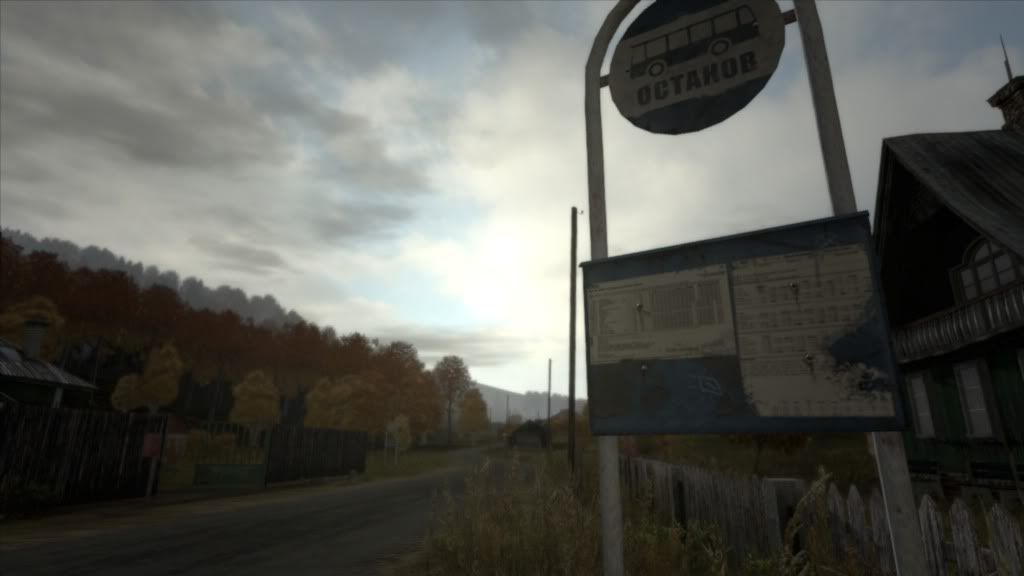
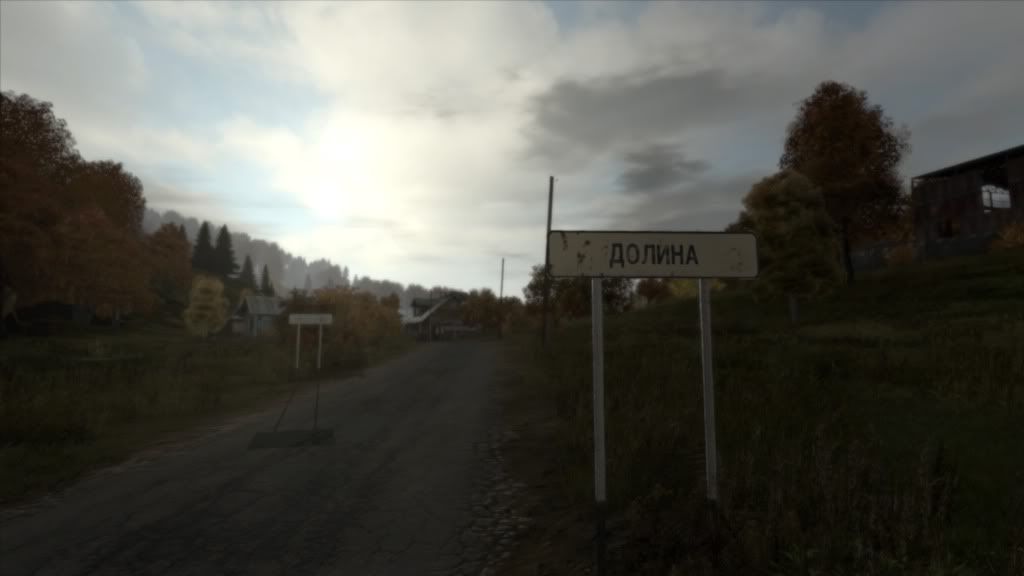
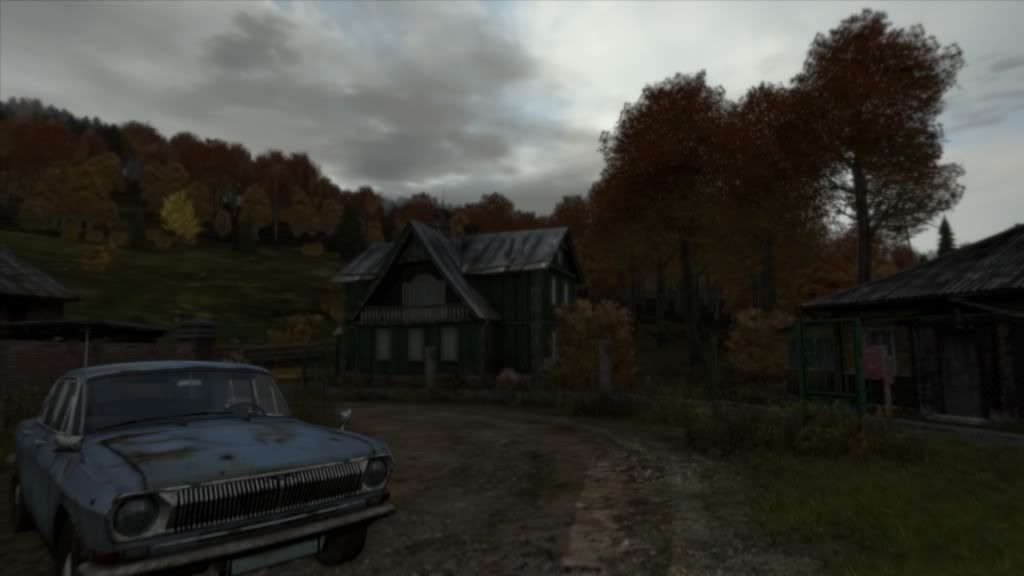
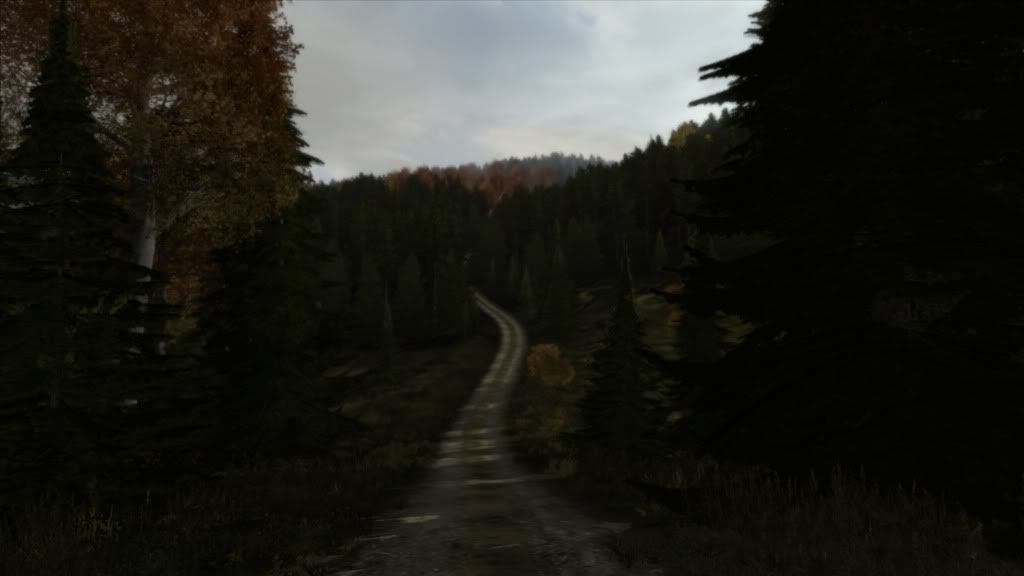
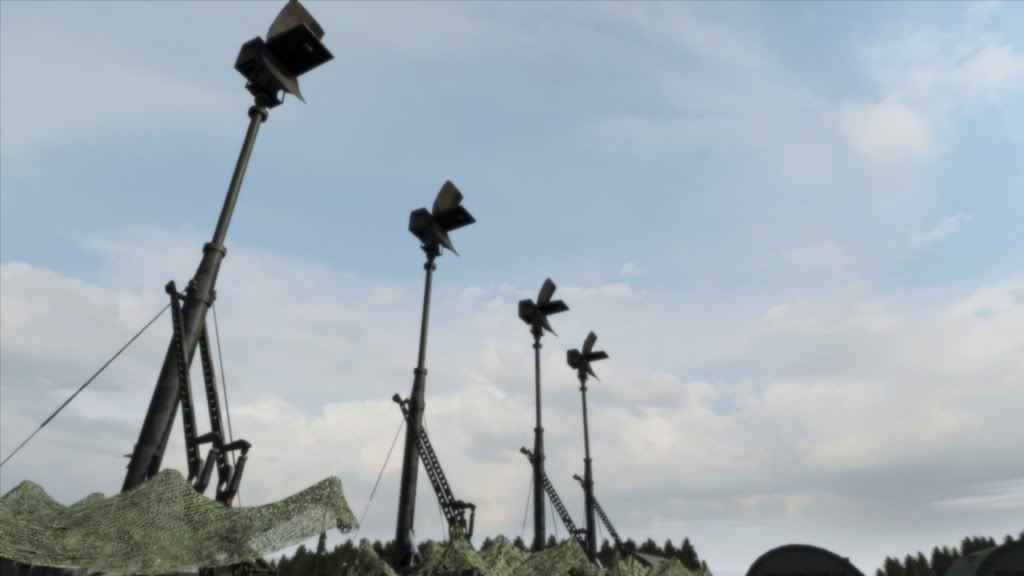
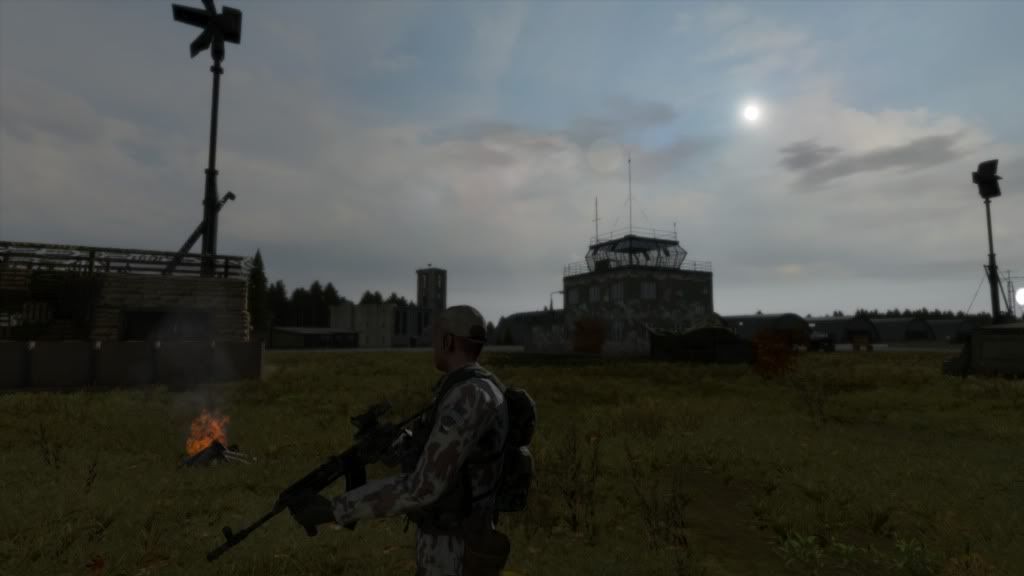
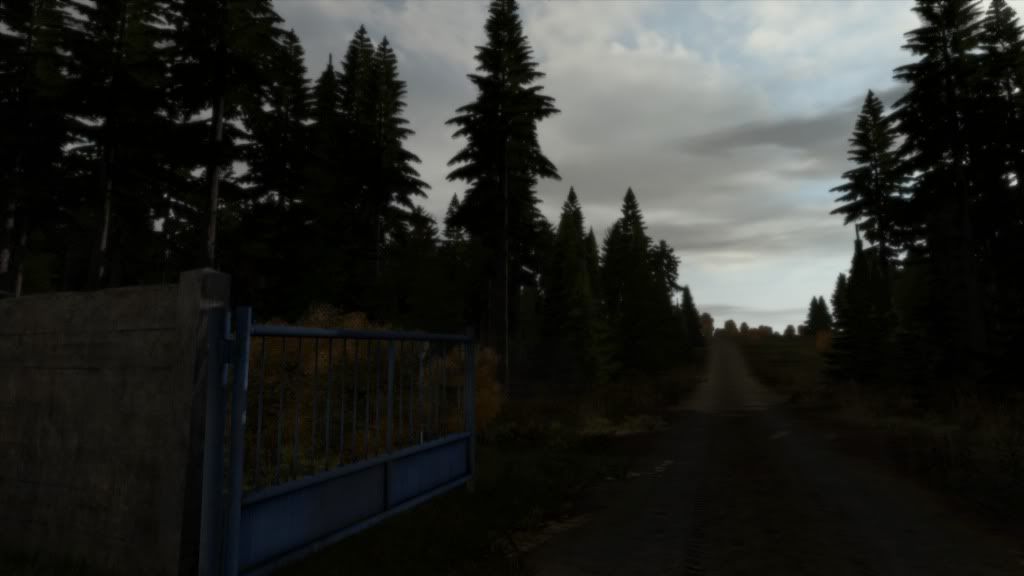
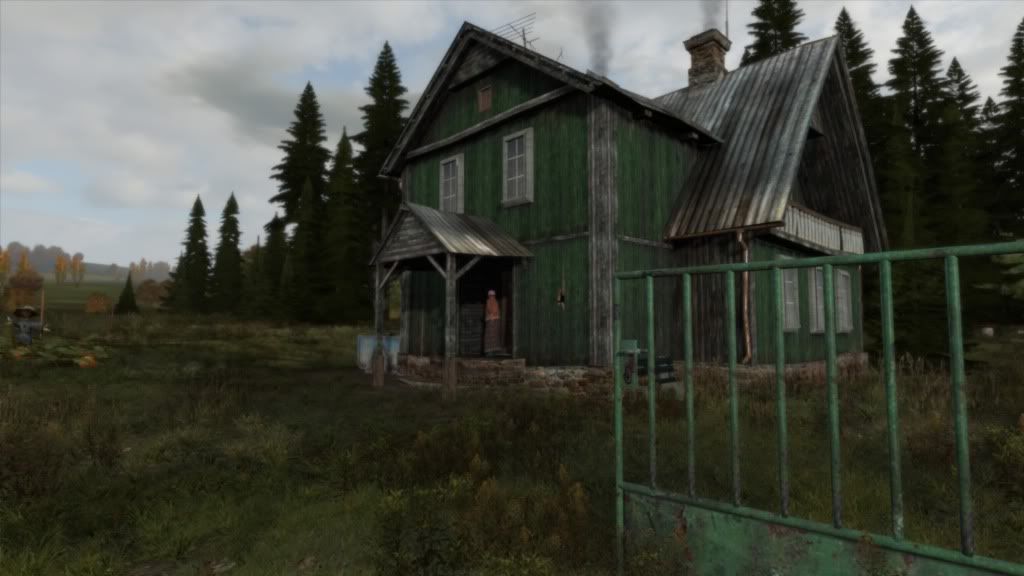
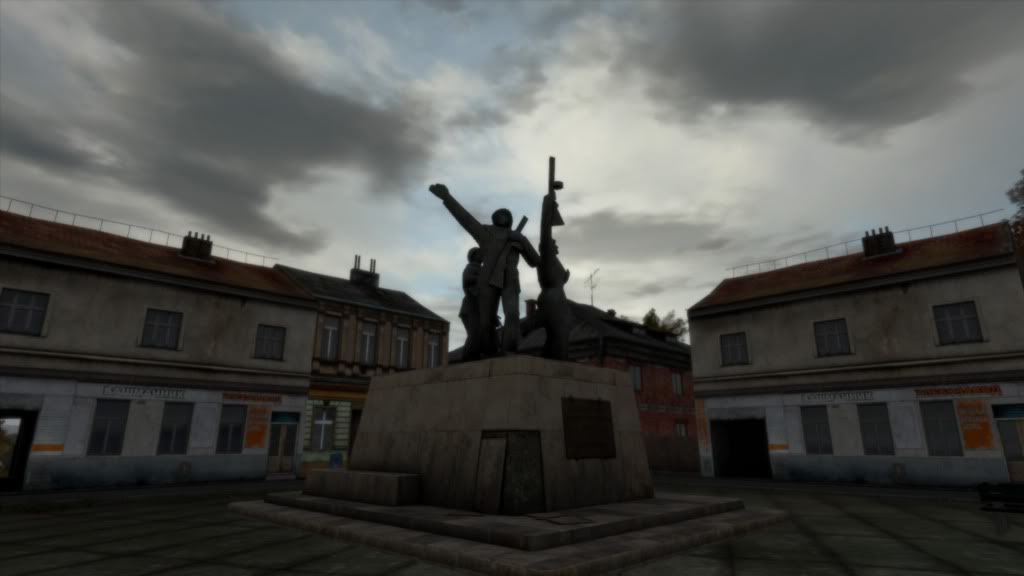
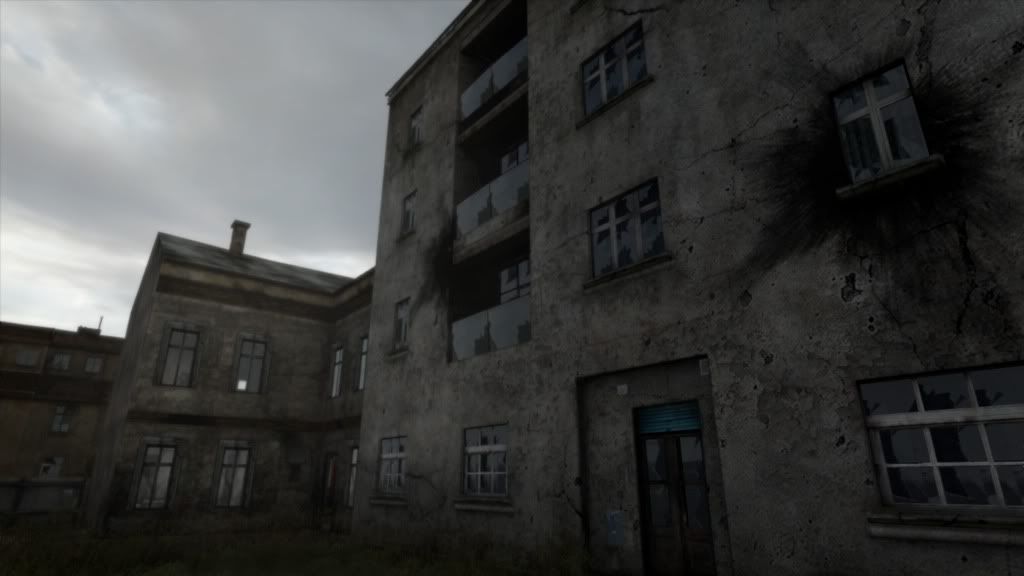
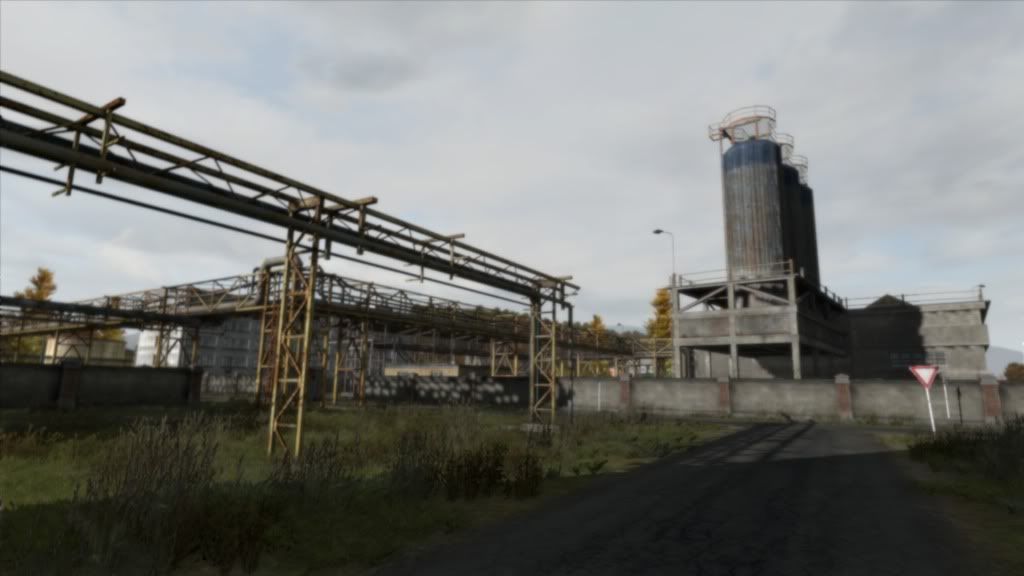

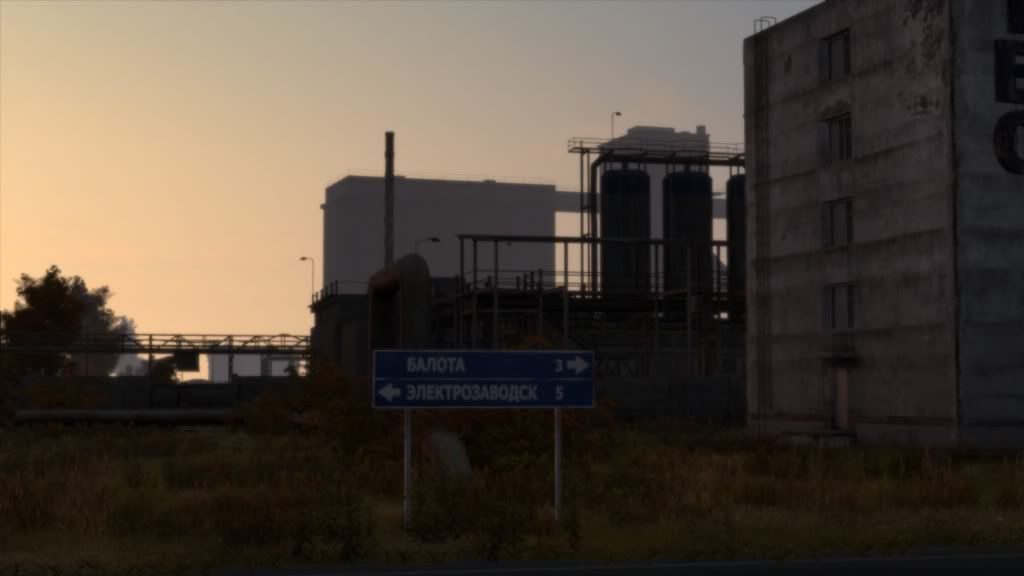
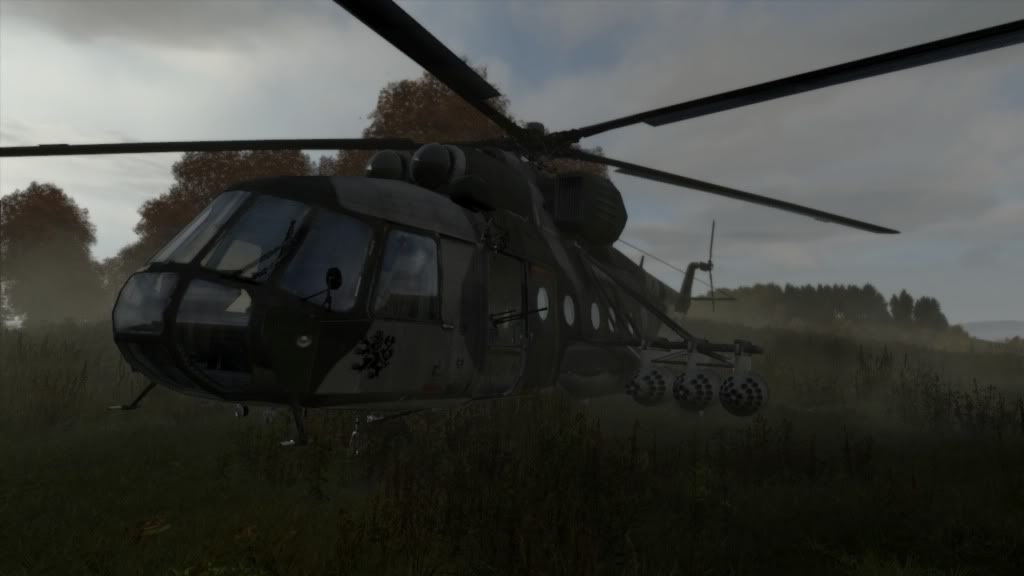
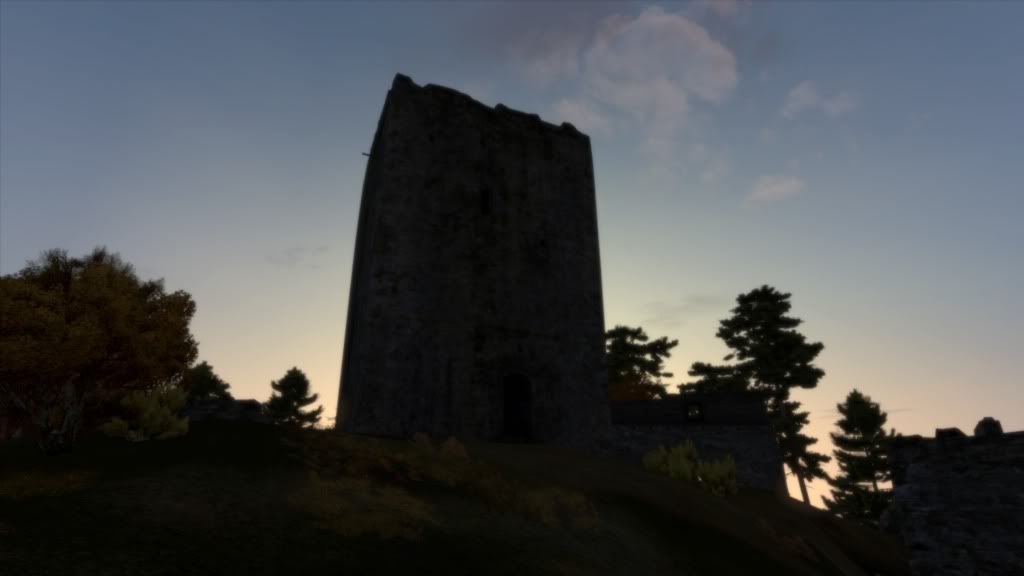
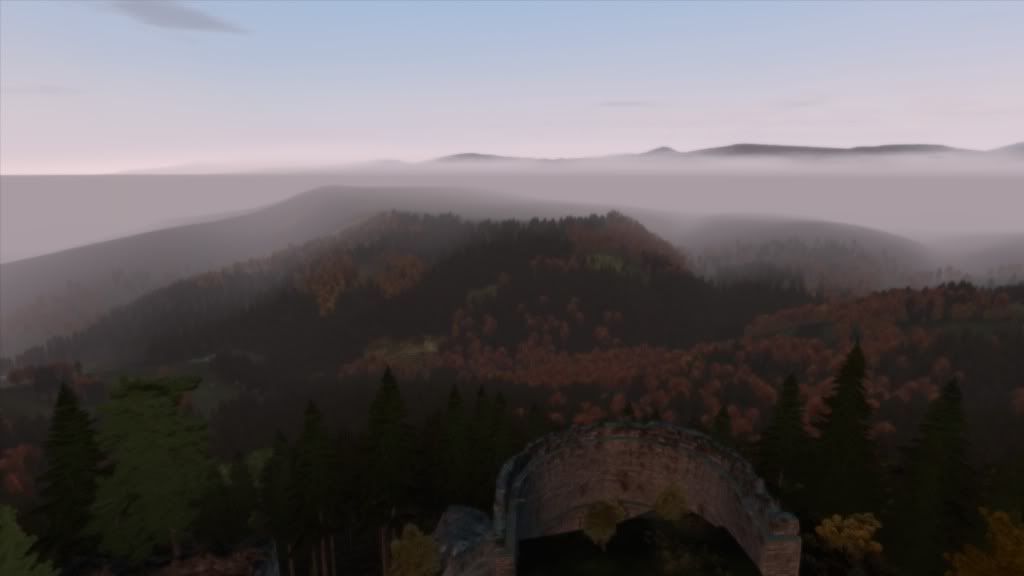
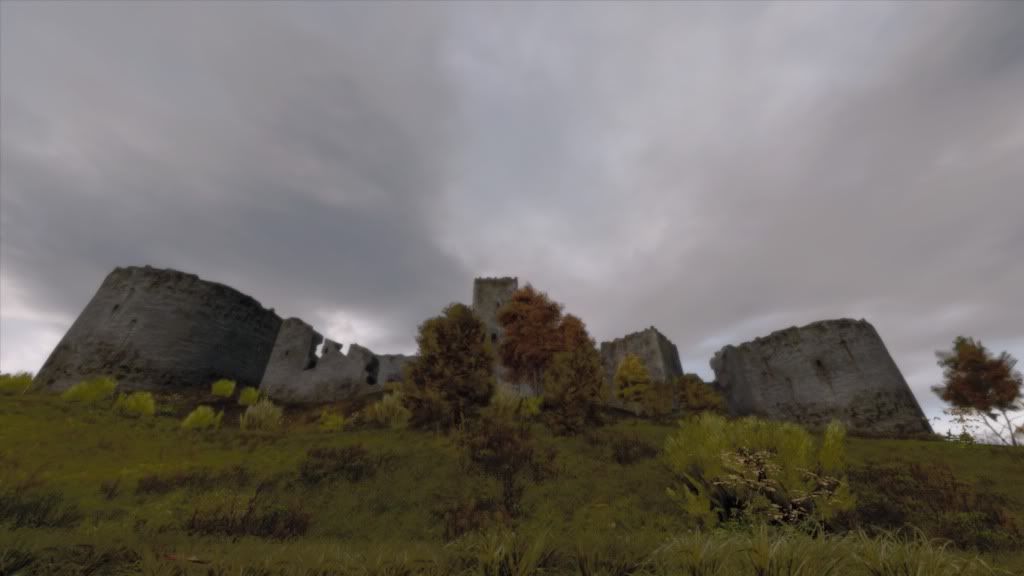
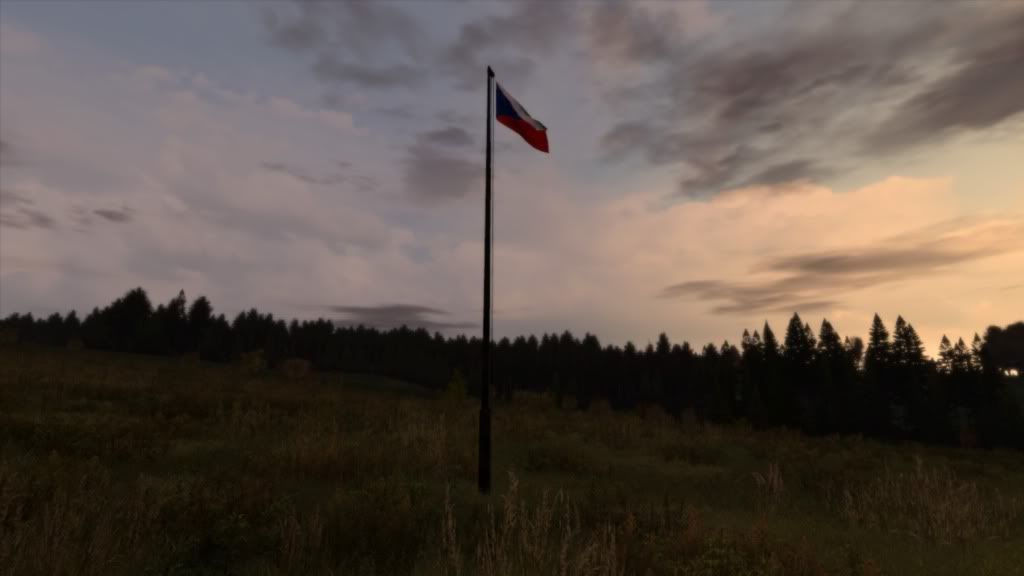
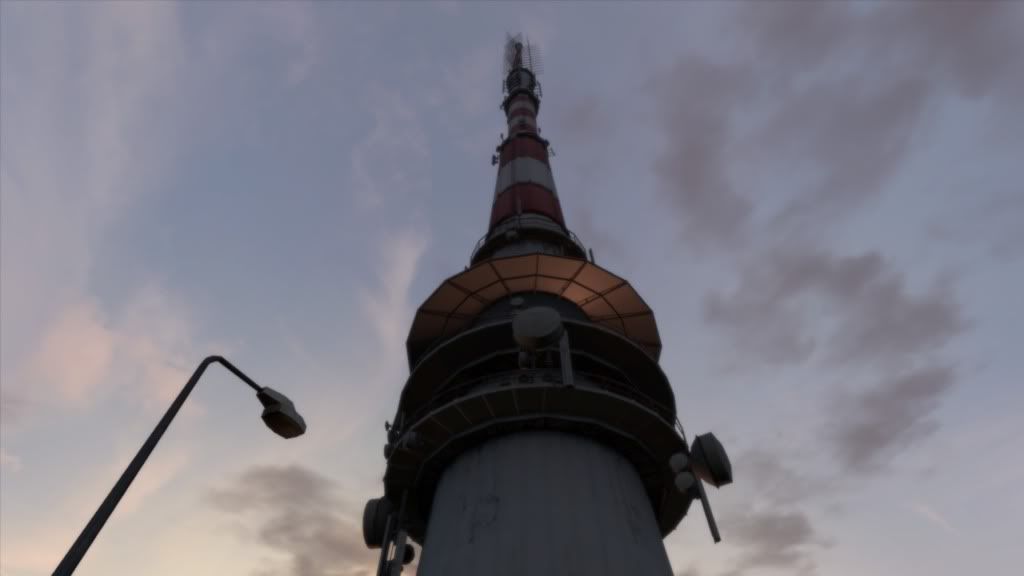
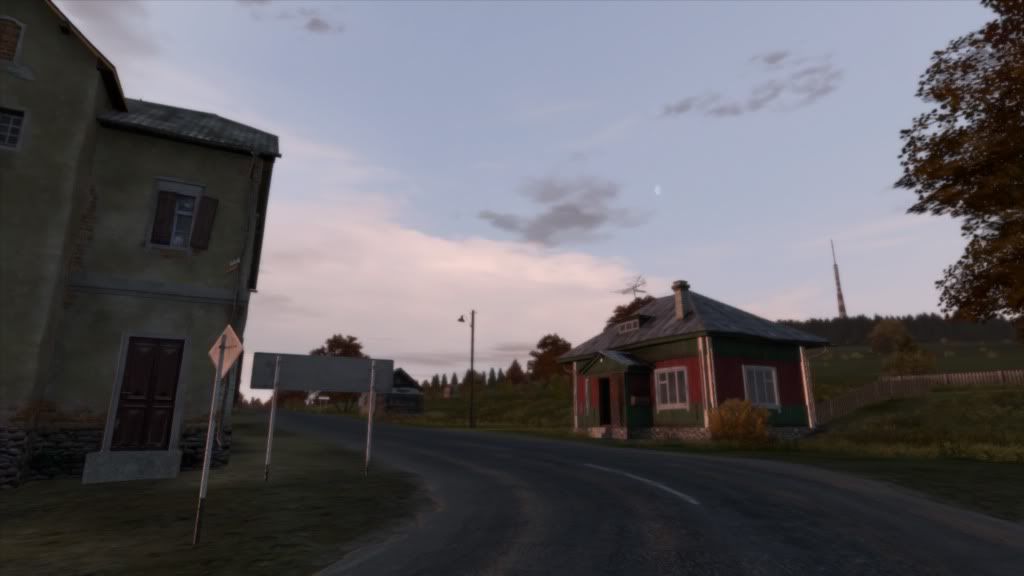
Look at what I just got *gaspARMAXcoughweeze*
by DraugenCP on Comments
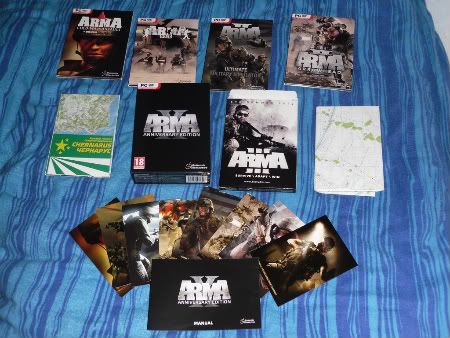
Were you expecting MW3, perhaps?
Well, I decided this would be more worth my while. ArmA X Anniversary Edition includes all Arma games, expansions, DLCs, updates and fruitbats released to date. It even includes the original Operation Flashpoint (the spiritual predecessor to the series), rebranded ArmA: Cold War Assault, along with the expansion pack. Further more, all games are packaged in separate, digipack-styled boxes, all of which include the respective original front cover art and backflap. As if that wasn't enough, you also get 8 rather cIassy post cards and several maps of the levels. Finally, the Cold War Assault disc includes over 4 gigs of digital extras, including the complete soundtracks to all the games, wallpapers, desktop icons, high-res promotional pictures and tutorial videos.
The price of this pack? 50 euros. The price of a new PC game. Hell, less than the aforementioned MW3. Remember when I gave Metroid Prime Trilogy a 10 and called it the best deal in years for its wealth of content? No? Well, I gave Metroid Prime Trilogy a 10 and called it the best deal in years for its wealth of content. ArmA X, however, dwarves even that in terms of content. Hell, even the Orange Box has met its match. There's about 8 campaigns (maybe even more, I lost count) to play through, as well as tons of separate single player levels. Then there's the expansive multiplayer, and the godlike editor that makes for endless possibilities. Sure, Arma has a reputation of bugginess and thus not every piece of content is easy to enjoy at all times, but with so many things to do, who really cares? Man, I have to postpone my purchase of Skyrim or I'll never sleep again.
That's it; just wanted to share my enthusiasm. Greetings from Takistan.
My life as a PC snob
by DraugenCP on Comments

In the first decade or so of my gaming life, I really was a 'the glass is half full' kind of guy. Everytime I got a new game, I would euphorically dub it 'the best game ever' after barely having made it past the title screen, a cIassification that usually lasted until the next video game was bought and inevitably received with a similar amount of worship. I don't know exactly why I did this, but it must have been a combination of infantile positivism and a reluctance to admit that I bought a subpar game; after all, I didn't have a lot of money to spend as a kid and acknowledging the crappiness of a game was equal to realising that I had just wasted a good three months of pocket money. Whatever the reason for this attitude, I sometimes miss the days in which I could attribute scores of 90% or higher to virtually every remotely playable game I owned. Especially since I made the switch back to PC gaming - after spending over a decade as a console peasant - I find it increasingly more difficult to enjoy games that don't meet my high expectations.
Due to what can be described as the 'Steam holiday sales fever', I now have a bigger gaming backlog than ever before. Unlike some people, I don't see this as a bad thing, as I theoretically always have something to play when I'm bored. In practice, however, a lot of my gaming sessions are preluded by me staring indecisively at my desktop or Steam library for roughly the same amount of time it took me to write this article. The worst part is that this ritual is not even caused by the games all being equally fantastic, but rather by so many titles just not living up to my standards, so that playing them feels like a chore - a tedious time wasting session that could easily be spent on more fruitful activities. When I compare this sentiment with my optimist attitude as a child, it is tempting to conclude that games simply have gotten worse. The truth, however, is in fact quite the opposite: some of the more recent games I've played are so good that it is hard to settle for anything less.
The most obvious example of me subconsciously raising the bar of my expectations can be found in the first person shooter genre. When I reviewed The Conduit a little over a year ago, the only current-gen system I owned was a Wii, and as a result I didn't have a lot of experience with modern first person shooters. I acknowledged the game's flaws, but at the same time I found it a very enjoyable title, and I even went as far as finishing it twice, which is a rather rare thing for me to do still. After I got my gaming PC a little while later, though, the first thing I did was to get virtually every borderline relevant FPS title of the past 7 or so years. Games such as STALKER, Crysis, Half-Life 2, BioShock, FEAR, ArmA II, Call of Duty 4 and Cryostasis were all purchased, finished and digested.
Crude as it may sound, I don't think I would have gone through the trouble of even finishing The Conduit once, had I gotten it during my PC gaming period. I know this because, apart from the FPS cIassics mentioned in the previous paragraph, I also got plenty of other, less relevant games in the genre, such as Aliens vs. Predator 2010, Doom 3, Section 8 and Ghost Recon: Advanced Warfighter. And even though these titles are all better shooters than The Conduit, I have not gotten around to beating any of these games yet, as even staring at my desktop strikes me as more appealing sometimes.
Each playing session involving any of these games is usually accompanied by a critical analysis of every shortcoming I expose, as well as rather unfair mental benchmarking tests involving superior games. While my body is trying to progress through the game, my mind is constantly generating negative remarks about what happens on the screen: "the guns in this game handle horribly in comparison to STALKER"; "the AI is horrible compared to FEAR's"; "wow, the level design is lackluster"; "the story can't compete with the plot of Cryostasis", et cetera. It seems as if I have developed a critical, somewhat cynical view on gaming that keeps victimising a steadily increasing number of titles.

While my newfound eye for detail certainly benefits my skills as a reviewer, I sometimes long back to the time when I could still enjoy every halfway decent game that ended up in my collection. In those days, I could be totally immersed by a game like Tonic Trouble, or look past the inherent flaws of Rare's collectathon platformers. Nowadays, even so-called AA games such as Doom 3 can at times bore me to death. This is particularly sad, seeing as games are still entertainment, and snobbish aesthetic ideals of what video games should strive for or embody essentially only mar the pleasure derived from them. Perhaps my coming of age and subsequent joining of the ranks of the PC master race have finally taken their toll.
Thank God there are more important things to worry about in life than video games. I just hope I don't become a cynical snob in real life, as well.

Log in to comment